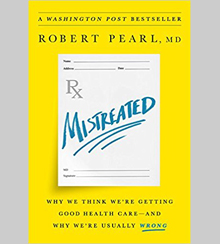Inc., June 26, 2017
by Theodore Kinni

On Sunday, June 25, a map of Disneyland sold for $708,000, the highest price ever paid at auction for a piece of Disney memorabilia. It's worth every penny. This is the map that Walt Disney and his brother Roy used to raise the financing needed to build Disneyland. This map launched the parks and resorts business that swelled the coffers of the Walt Disney Company by $17 billion in fiscal 2016.
The map was drawn in September 1953, over a single weekend. As Disney Legend Herb Ryman later recalled, Walt called him on a Saturday morning and asked him to come to the studio. When Herb arrived, Walt explained that he needed $17 million to build Disneyland.
"Gee, that's a lot of money," said Herb. "What's the park going to be like?"
"It's going to have a lot of rides and it's going to have a train," said Walt. "It's going to have a lot of things, a whole lot of things. A lot of people. Very exciting. Roy has got to take a drawing with him on Monday morning to show the bankers. You know the bankers don't have any imagination."
"Well, where are the drawings?" asked Herb. "I'd like to see them."
"Oh, you're going to make them," said Walt. Read the rest here




















